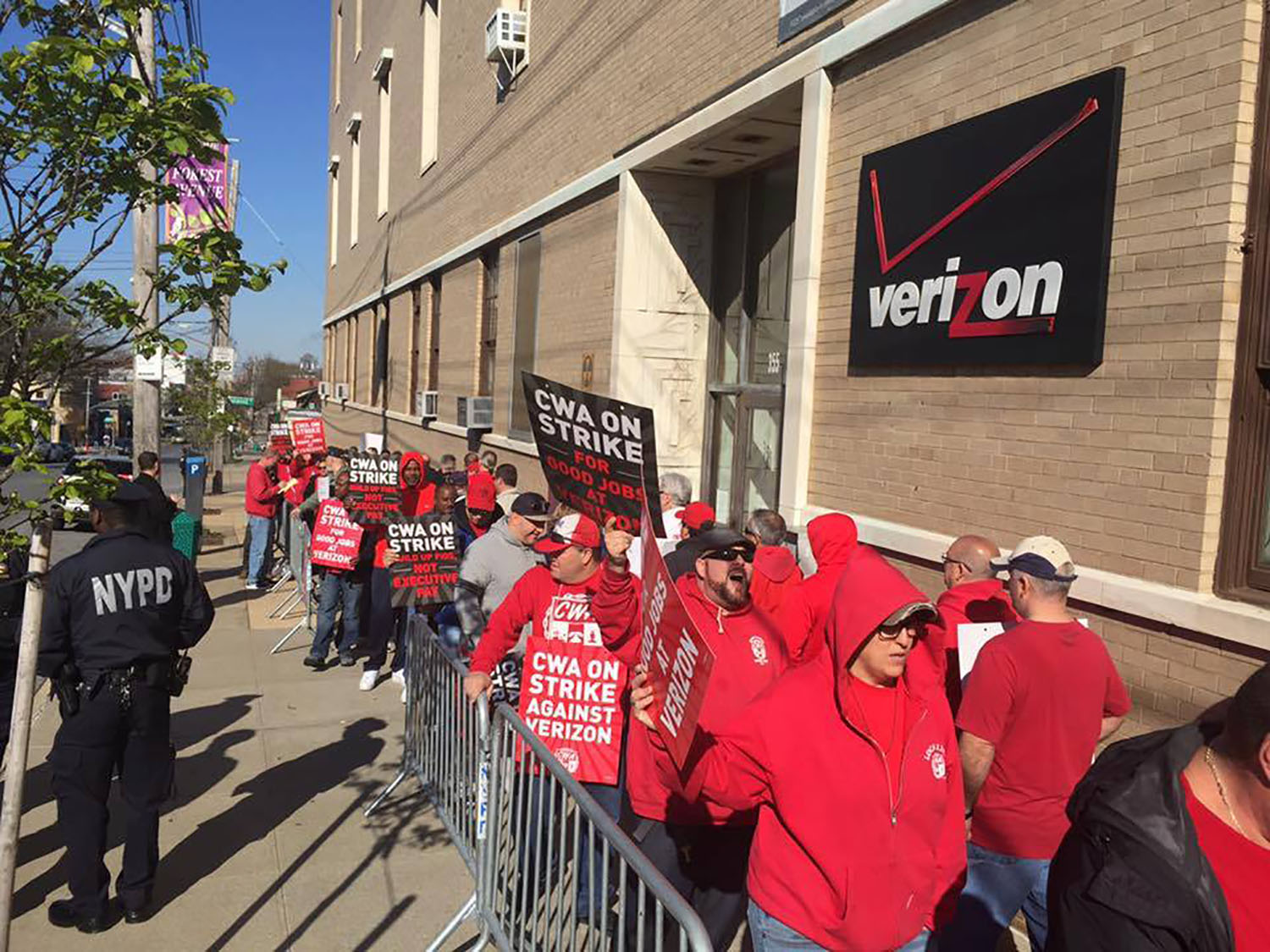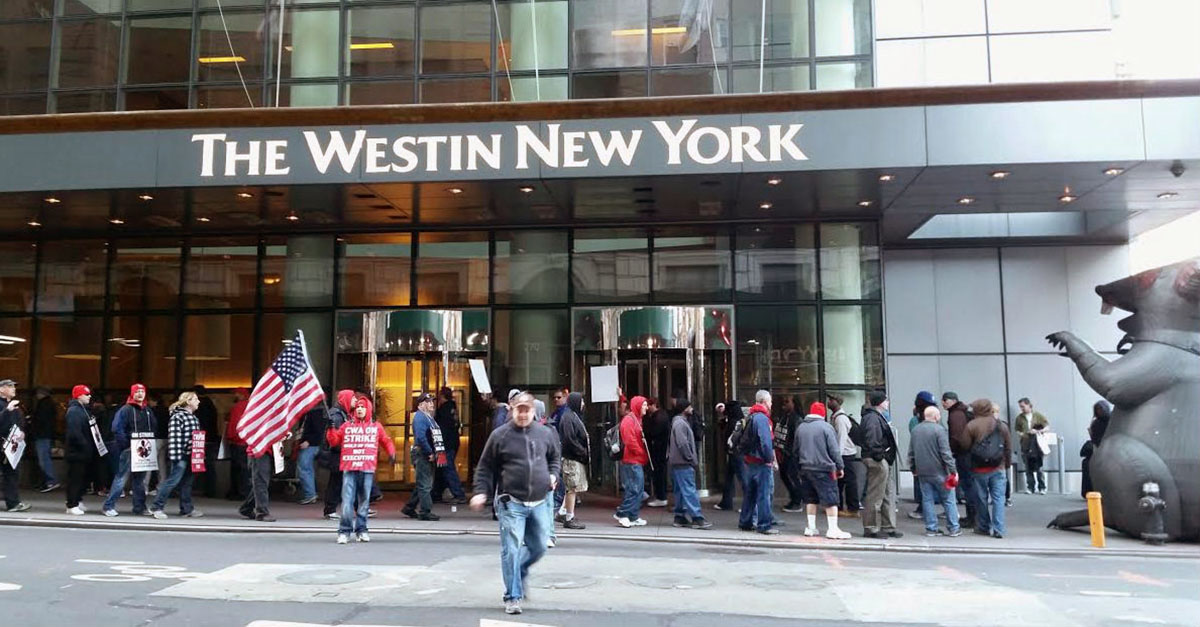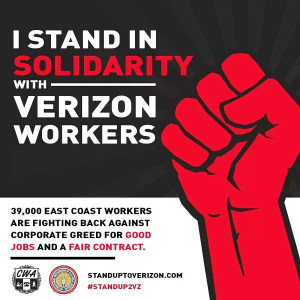Fox Valley Labor News
staff reports
Thursday, April 21, 2016
NEW YORK — More than 40,000 men and women went on strike April 13 against Verizon — 30,000 from the CWA and nearly 10,000 members of the IBEW.
“No one ever wants to go on strike — it’s always the last resort,” said International Brotherhood of Electrical Workers President Lonnie R. Stephenson. “But Verizon’s refusal to bargain in good faith with employees and its insistence on gutting job security, retirement security and outsourcing good American jobs overseas gives us no choice.”

Communication Workers of America members march on strike against Verizon in New York to preserve decent wages, benefits and a dignified retirement. Photo courtesy of Communication Workers of America
Union negotiators met with Verizon officials April 15, but talks broke up less than 30 minutes later when company officials increased concession demands.
“We did not want things to deteriorate to this point, and we hoped Verizon would come to their senses quickly when it did. Clearly they are not ready to accept that the men and women that built this very profitable company know their value,” said Telecommunications and Broadcast Director Martha Pultar.
Negotiations on a contract began last June. At the heart of the conflict is Verizon’s demand the installation and repair technicians, call center operators and clerical workers accept draconian cuts to employee pensions, health care, job security and benefits for workers injured on the job.
Verizon also is demanding workers accept a policy that could transfer service technicians out of their service areas on only a few days’ notice for two months or more.
“If Verizon tried to send me away for weeks or even months at a time, I’d have to look for another job,” said Justin Draper, a member of Cranston, R.I., Local 2323 and a single father of two. “I’ve given 18 years to this company, but being away from my kids just simply isn’t an option for my family.”
Verizon has posted profits of $1.8 billion per month so far this year, and $39 billion over the last three years. Nevertheless, it is asking for concessions by not just workers, but also retirees. Verizon’s proposed raising retiree health care costs by hundreds of dollars.
Phyllis Moniz was a Verizon service representative for 34 years before she retired in 2010.
“I was diagnosed with lung cancer in 2013, and I spend four weeks at a time on chemotherapy. My health care costs are already huge, and now they want to add more on top of that? I’m retired. I don’t know how I’d be able to do it,” Moniz said from her home in Portsmouth, Rhode Island. “If the company was broke, it would be different, but they’re raking in billions of dollars and trying to squeeze every last dime out of the people who built this company.”
Across the region, striking workers watched nonunion and management replacement workers heading to do their jobs, but remained peaceful.
Elected officials, allies from other unions and members of the public joined the strikers in New York City, Philadelphia, and Rhode Island.
Both former Secretary of State Hillary Clinton and Sen. Bernie Sanders joined picket lines April 13. During the April 14 democratic candidate’s debate, Sanders called on Verizon’s CEO to return to the negotiating table.
“This is a perfect example of the kind of corporate greed that is destroying the middle class of this country,” Sanders said. “There are some great businesses. Verizon happens to not be one of them.”
International President Lonnie R. Stephenson has announced that the IBEW Unity Fund will provide support for striking workers.

Verizon strikebreakers have been thrown out of three New York City hotels, thanks to direct action by striking CWA members, solidarity from the hotel workers’ union and Teamsters Local 814. When CWA members found out Verizon was dispatching strikebreakers out of midtown hotels, the strikers got busy. They mounted massive picket lines in front of the Sheraton, Renaissance and Westin hotels in Manhattan’s midtown. Scabby the Rat joined strikers on the picket line. The New York Hotel Trades Council also backed the strikers and promised to honor their picket lines. Photo courtesy of Communication Workers of America

